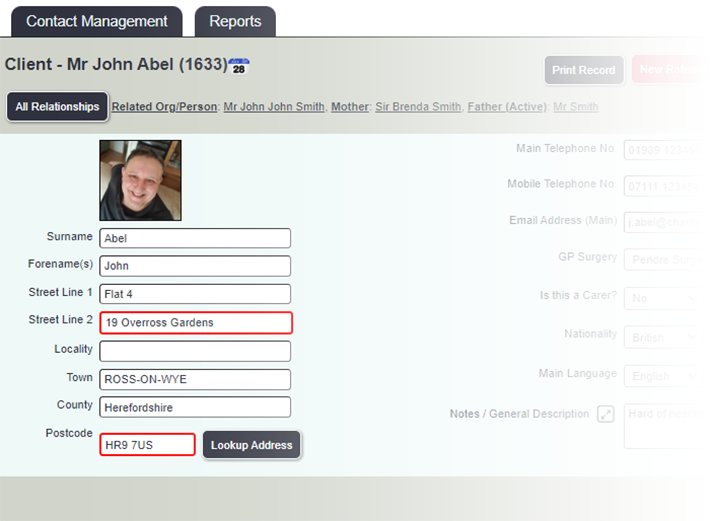Does it hold everything in one place?
You are likely to have clients/service users. A CRM will help you keep track of them and staff interactions with them. But there is scope to do much more. For example, keeping track of volunteer recruitment, staff reviews, external organisations providing referrals, professionals, families and more.
All these people and organisations are involved in the overall functioning of the charity and it is much easier if the details are all in one place. This is especially true where you have people with multiple roles, for example a carer who is also a volunteer and also a trustee.

